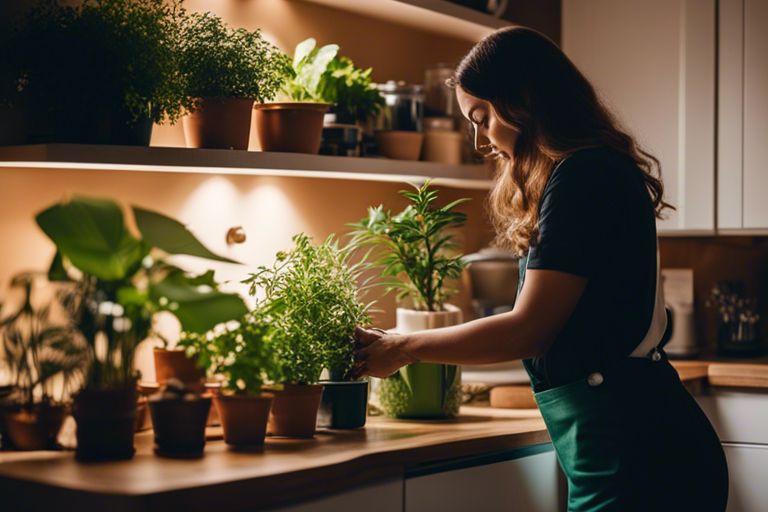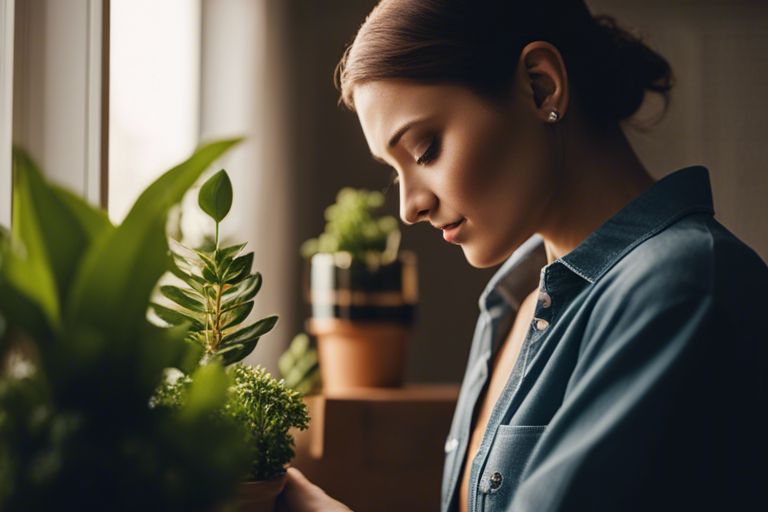As a responsible cat owner, it is imperative that you take necessary precautions to protect your feline friend from potential poison hazards. With their curious nature and penchant for exploring, cats are particularly vulnerable to toxic substances in their environment. It is important to educate yourself about common household items, plants, and food that can be harmful to your cat, and take proactive measures to ensure they are out of reach. Additionally, be vigilant about any potential pest control products and always seek veterinary advice before using any new medications or treatments on your cat. By maintaining a keen awareness and creating a safe environment, you can significantly reduce the risk of poisoning for your beloved pet.
Key Takeaways:
- Be mindful of household toxins: Keep poisonous substances such as cleaning products, medications, and certain plants out of reach of your cat.
- Properly store food and chemicals: Store human and pet foods, as well as chemicals and pesticides, in secure containers to prevent accidental ingestion by your cat.
- Regularly monitor your cat’s environment: Keep an eye on your cat and its surroundings to ensure that they do not have access to potential toxins or hazards.
- Consult with your veterinarian: Seek advice from your vet for effective preventative measures and information on potential risks in your household.
- Act immediately if poisoning is suspected: If you suspect your cat has been poisoned, contact your veterinarian or an emergency pet poison hotline immediately for assistance.
Potential Poisons in Your Home
Obviously, you want to keep your cat safe from harm, and being aware of potential poisons in your home is crucial. There are several common household items that can be toxic to cats, so it’s important to be aware of these and take preventative measures to keep them out of your cat’s reach.
Household Plants That Are Toxic to Cats
There are several household plants that are toxic to cats if ingested. Some common examples include lilies, tulips, and poinsettias. If you have these plants in your home, make sure they are placed in areas that your cat cannot access. You may also want to consider choosing cat-friendly plants such as spider plants or catnip to minimize the risk of poisoning.
Household Chemicals and Cleaners
Many household cleaners and chemicals can be harmful to your cat if ingested or inhaled. This includes bleach, ammonia, and certain pesticides. Make sure to store these items in secure cabinets or closets, and thoroughly clean up any spills to prevent accidental exposure. Consider using pet-safe alternatives or natural cleaning products to minimize the risk to your cat.
Human Foods That Can Harm Cats
Some human foods can be toxic to cats if ingested, including chocolate, grapes, onions, and garlic. It’s important to be mindful of what you’re feeding your cat and to avoid sharing these foods with them. Keep all human food out of reach of your cat, and be sure to securely close and dispose of any food wrappers or packaging that could be harmful if chewed on.
By being aware of these potential poisons in your home and taking the necessary precautions, you can help protect your cat from accidental poisoning and keep them safe and healthy.

Creating a Safe Environment
Despite your best efforts to keep your cat safe, accidents can still happen. To ensure the safety of your feline friend, it’s important to create a safe environment for them to roam and play in. For more information on potential dangers and signs of poisoning in cats, you can visit Poisoning in cats provided by RSPCA.
Cat-Proofing Your Home
When it comes to cat-proofing your home, it’s essential to pay attention to the little things that might pose a danger to your pet. Look out for toxic plants, hazardous chemicals, and small objects that could be swallowed. Keep all potential poisoning hazards out of reach and secure any cabinets or drawers that contain harmful substances.
Safe Alternatives for Your Cat’s Entertainment
Instead of leaving potential hazards lying around, provide your cat with safe alternatives for entertainment. Opt for interactive toys and puzzle feeders to keep them occupied, and make sure to schedule regular playtime to keep them active and engaged. This will not only keep them away from potential dangers but also provide mental and physical stimulation.
Emergency Preparedness
To ensure you are prepared in case your cat gets poisoned, it is important to have an emergency plan in place. Keep the contact information for your regular veterinarian, as well as the nearest emergency veterinary clinic, easily accessible. It is also a good idea to have a pet first aid kit on hand that includes items such as gauze, adhesive tape, hydrogen peroxide, and activated charcoal. Familiarize yourself with the location and hours of operation of the nearest emergency veterinary clinic so you can act quickly if needed.
Recognizing Signs of Poisoning in Cats
Recognizing the signs of poisoning in cats is essential for taking swift action. Some common symptoms of poisoning in cats include vomiting, diarrhea, excessive drooling, difficulty breathing, seizures, and disorientation. Additionally, you may notice your cat exhibiting symptoms such as weakness, trembling, or uncoordination. Keep in mind that the symptoms of poisoning can vary depending on the specific toxin ingested.
Immediate Steps to Take If Poisoning Occurs
If you suspect that your cat has been poisoned, act quickly but remain calm. Remove your cat from the source of the poison and keep them in a safe, quiet place. If the poison was ingested, do not induce vomiting unless specifically instructed to do so by a veterinarian. Instead, contact your veterinarian or a pet poison helpline for guidance. Be prepared to provide details about the suspected poison, the amount ingested, and your cat’s symptoms.
When to Seek Veterinary Care
If you suspect your cat has been poisoned, it is crucial to seek veterinary care immediately. Even if your cat appears to be stable, poisoning can cause internal damage that may not be immediately apparent. Do not wait for symptoms to worsen before seeking help. The sooner your cat receives medical attention, the better their chances of recovery. Remember, it’s always better to be safe and have your cat checked by a veterinarian, even if you are unsure if they have been poisoned.
Prevention Strategies
After understanding the potential dangers your cat faces from poisoning, it’s essential to put in place measures to prevent it. Here are some strategies to keep your feline friend safe from harm:
Regular Home Safety Check-Ups
Regularly inspecting your home for potential hazards can help in preventing accidental poisoning. Ensure that all cleaning products, medications, and toxic plants are stored securely in cabinets or on high shelves that are out of reach of your cat. Keep an eye out for any small items, such as rubber bands or small toys, that your cat might ingest as well. Get into the habit of doing a thorough safety check of your living space every few months to make sure all potential hazards are out of reach.
Educating Others on Cat Safety
It’s important to educate everyone in your household about the potential dangers of poisoning to your cat and the precautions that need to be taken. Make sure that guests and visitors are aware of the hazards as well. Inform your family and friends to keep their belongings and food and beverages in safe areas to prevent your cat from accidentally ingesting anything harmful. By spreading awareness, you can create a safe environment not just in your own home, but wherever your cat may roam.
Summing up
By keeping potential poisons out of reach, using safe plants in your home, and being cautious of household cleaning products, you can effectively prevent your cat from getting poisoned. Additionally, being aware of common toxic foods and ensuring your cat has access to a balanced diet will also contribute to their safety. Taking these precautions will help ensure the health and well-being of your feline friend.
FAQ
Q: What are some common household items that are toxic to cats?
A: Common household items that are toxic to cats include certain plants like lilies and chrysanthemums, human medications such as acetaminophen and ibuprofen, and household chemicals like antifreeze and cleaning products. It’s important to keep these items out of reach of your cat to prevent accidental poisoning.
Q: How can I prevent my cat from accessing dangerous substances?
A: To prevent your cat from accessing dangerous substances, be sure to secure cabinets and drawers containing toxic items with childproof locks. Additionally, keep houseplants that are toxic to cats out of reach, and store all medications and chemicals in a secure location. Regularly check your home for potential hazards and remove them promptly.
Q: What are the symptoms of poisoning in cats, and what should I do if I suspect my cat has been poisoned?
A: Symptoms of poisoning in cats can include vomiting, diarrhea, excessive drooling, lethargy, and seizures. If you suspect that your cat has been poisoned, immediately contact your veterinarian or an emergency veterinary clinic. Do not attempt to induce vomiting or administer any home remedies without professional guidance, as this can worsen the situation. Time is of the essence in cases of poisoning, so swift action is crucial.

Jayley, a devoted cat enthusiast, also writer for other cat blog as well. She aims to dedicated to providing comprehensive information, insights, and advice on everything you’d ever want to know about our whiskered companions.
